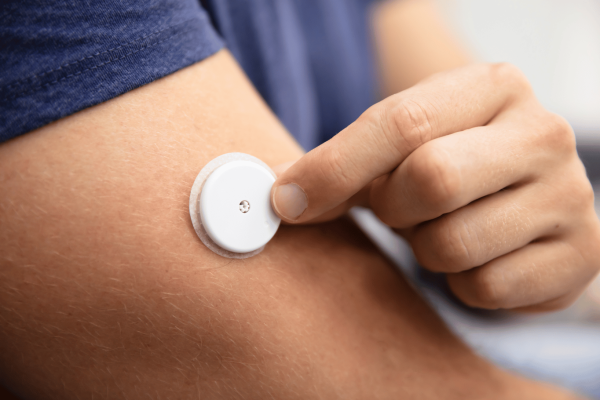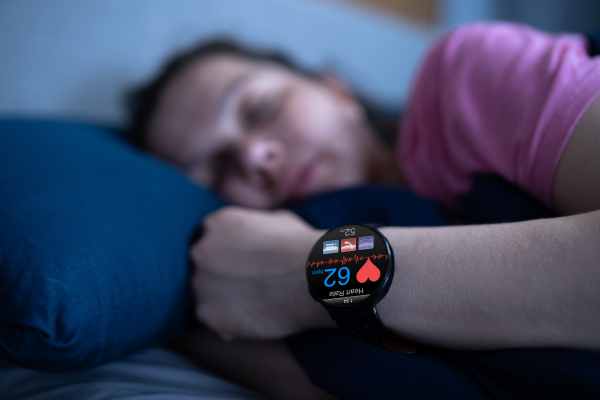Someday, clinical and post-market research will be 100 percent remote.
Someday, all studies will be conducted in a single tech platform with data from any source.
Someday, all study participants will enter data via their own mobile device, from anywhere.
Someday, studies will be completed in minutes and days, rather than months and years.
These ideas may sound like they’re far down the roadmap to implementation. But in fact, ‘someday’ in the clinical research space is now. Read on to discover how these concepts are made possible – and practical – today by applying technology to work for rather than against research professionals and patients.
Conduct research on a cross-functional, end-to-end data collection and study management platform via web browser and downloadable mobile app
It’s winter 2020 and COVID-19 is in full swing. A medical device sponsor is conducting a clinical trial on an innovative cardiac stent. The sponsor has chosen to take a hybrid approach to their study to decrease risk and increase patient safety, adhering to the FDA’s guidance on conducting clinical trials during the pandemic. As a result, they’ve selected an eClinical platform that allows them to perform all data collection and study management tasks, including electronic data capture (EDC), electronic patient-reported outcomes (ePRO) and electronic informed consent (eConsent), clinical trial management system (CTMS), randomization and trial supply management (RTSM), clinical adjudication, medical coding, and reporting and analytics.
To avoid the added work associated with using multiple disparate systems for a clinical trial, the sponsor specifically sought out an eClinical platform that operates on a centralized cloud-based database. This allows them to avoid unnecessary integrations, manual imports and exports to move the data, and data reconciliation.
Collect, manage, and analyze data from anywhere and from any source
Much of the research team is working remotely and has direct access to every role-based function on the platform from their computer via web browser and downloadable (native) mobile app for iOS and Android smartphones and tablets. As a result, research professionals have real-time access to the study on their preferred device and experience smooth collaboration while eliminating departmental silos and siloed data.
The research team accomplishes a rapid trial start-up with the platform’s efficient study design tools. The platform requires no programming knowledge and features an intuitive, drag-and-drop form builder that makes quick work of creating forms and questionnaires containing incredibly flexible rules, edit checks, and form logic. The platform’s mobile app expedites testing and validating the forms with the ability to view them and make adjustments immediately. Because of this, the sponsor is able to build, validate, and deploy a study with a wide range of functionality (e.g., randomization, ePRO, product tracking, and payment tracking, to name a few) in a matter of a few weeks rather than a number of months.
For this study, the sponsor is collecting data directly from the patient and following a remote monitoring program as part of their hybrid trial method. They are employing the use of the patient’s own mobile device (bring-your-own-device [BYOD] style) and activity-tracking wearable device.
Once the patients are registered, they are able to provide consent electronically (eConsent). Upon eligibility being verified, the patient is automatically randomized into the study and the system adjusts for the workflow which will be followed by that patient. Also based on randomization, a study drug or device is automatically assigned from the site’s inventory. A secondary treatment procedure assigns additional devices in which the study participant can scan and verify once it’s received in the mail. Scanning devices is made simple with the platform’s barcode scanning capabilities via mobile app. The process of tracking devices during the study is also streamlined, as the disposition and history of each device is maintained alongside the study data.
With the platform’s cloud-based infrastructure, the research team can view and manage the data as it flows into the database in real-time. Gone are the days of gathering paper forms from study participants during a site visit; research professionals further shave down the trial timeline with immediate access to data.
Enable patients to consent remotely, enter data via browser or their own smart device, and integrate wearables for real-time site/sponsor data access
Patients complete eConsent to participate in the trial on their preferred device – be it via computer, tablet, or smartphone. Much easier to understand than paper-based consent documents of the past, eConsent documents now include hyperlinks or pop-ups with definitions of trial terminology, as well as photos or videos that add greater clarity of what the patient may expect in the trial. Potential study participants can sign via eSignature in both the web and mobile interfaces.
Throughout the course of the study, participants routinely complete questionnaires and surveys in the form of ePRO. The platform’s mobile app offers the same functionality and ease of use as with other apps commonly used in daily life (i.e., social media, banking, and shopping apps), including the ease and security of modern Touch or Face ID sign-in. When filling out forms in the app, participants use familiar gestures such as tapping, swiping, and uploading photos/videos. The app has the added global flexibility to operate in the device user’s native language for optimal experience.
In addition to electronic patient-reported outcomes, the participants in this cardiac stent study use the electrocardiogram (ECG) function of the Apple Watch on a daily basis to record the electrical activity from their heart. The results from the ECG automatically populate in the platform’s database for immediate access and analysis by the research team. This allows for quick action to be taken should a patient experience an adverse event during the trial.
Utilize newer technologies, such as artificial intelligence (AI) and blockchain, to transform clinical research as we know it
Digital technologies that have become prevalent in other industries in recent years, such as AI and blockchain, can be leveraged to innovate many facets of the clinical research process. Today, the sponsor has the ability to utilize the previously untapped resource of unstructured data from electronic health records (EHRs) and populate it as clean, structured data in the database via machine learning. All the while, the sponsor avoids direct integrations with the EHR system and minimizes time spent performing source data verification.
Blockchain technology has also entered the scene as a model that can help resolve many of the challenges the industry faces today, such as trial recruitment. Additionally, it presents a unique opportunity for data sharing in clinical research.
What’s next?
The study has concluded, and the sponsor has a similar cardiovascular trial in their pipeline. Instead of starting from square one to build the study, the sponsor can take advantage of the platform’s versioning feature to replicate many key components from the concluded cardiac stent study. Configurations including workflow, roles, role-based permissions, as well as forms, sites, users, and even data can be copied from the previous study. This will save the sponsor significant time and resources in the study startup stage and enable them to move their study live in days instead of weeks.
The scenario in this post is not merely conceptual. In fact, the study described here – and many others like it – can be conducted today in the TrialKit data collection and study management platform. TrialKit was purpose-built to provide a seamless experience for traditional, hybrid, and fully virtual clinical trials regardless of phase, therapeutic area and geography. Get in touch with us today with any questions and to discuss your trial needs.



